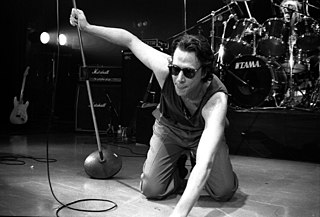A Quote by Lidia Yuknavitch
On a spectrum of literary productions, memoir is just another form. If the person doing the reviewing or critiquing was ill-educated about literary forms, they could write something dunderheaded about the author or their life (I've seen these and barfed at them), but anyone who is well-practiced and educated in literature - why would they leave that at the door when entering memoir?
Related Quotes
In my profession more generally, it's not an exaggeration to say that masculinity is viewed as the root of all evil. If you were to take a literary theory course, you might think it would be about literature, but it's really not. It's about all the various forms of oppression on earth and how we can see them playing out in literary works. And behind all these forms of oppression is a guy.
And it's kind of my own fault too, in the sense that I've used my own life as a literary device so much. I think people feel very comfortable reviewing the idea of me, as opposed to what I've actually written. I find that most of the time, when people write about one of my books, they're really just writing about what they think I may or may not represent, as sort of this abstract entity. Is that unfair? Not really. If I put myself in this position where I'm going to kind of weave elements of memoir into almost everything, well, I suppose that's going to happen.
It's certainly easy for me to make a fictional character mad about something. I can get them angry about something that I'm relatively indifferent about, just because I'm not educated on it, if I go to someone who is educated about it and is passionate about it. I find a point of fiction and then give it to them.
I was a 20-something woman living in London and didn't want to write about a 20-something woman living in London! It's an area well covered already, and people would probably have thought it was about me. I decided that if I wrote about an 82-year-old dementia sufferer, then no one could mistake it as a memoir.
































